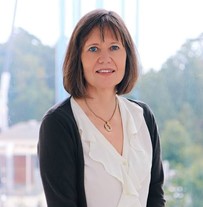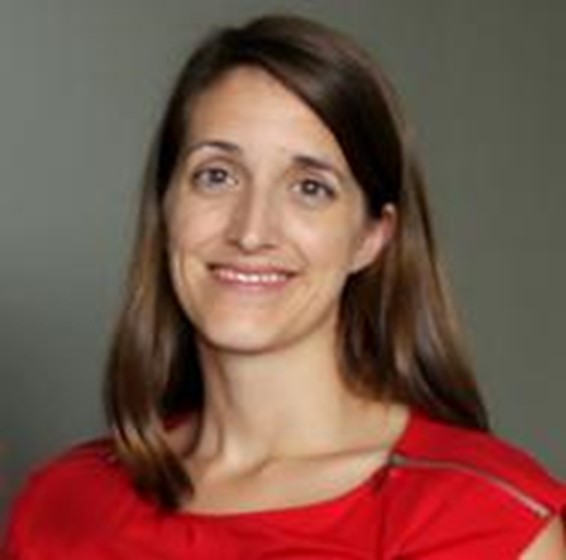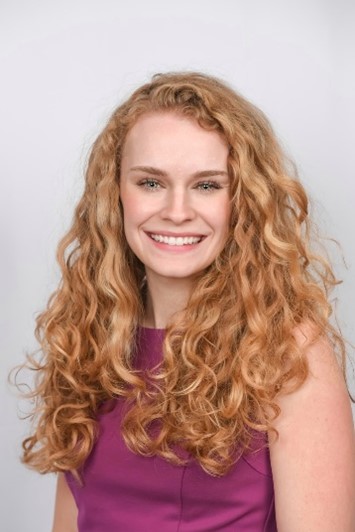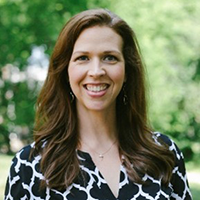Congratulations to several preceptors who were appointed, reappointed, or promoted through the School’s adjunct faculty review process in July 2020. Individuals who have been promoted are recognized for their exemplary and sustained involvement with education, scholarship, and service to the School and profession. We appreciate their contributions to the School and advancing student learning! Please see below for more details.
Click here for more information about the appointment and promotion process.
Recently Promoted Preceptors
Stacey Campbell-Bright, PharmD, BCPS, BCCCP
Professor of Clinical Education
UNC Eshelman School of Pharmacy
Clinical Specialist, Medicine ICU
UNC Medical Center
I graduated from Auburn University in 1985 with a Bachelor of Pharmacy Degree and then in 1986 from the University of Kentucky with a Pharm.D. After a brief period at Otago University in Dunedin, New Zealand, and Suburban Hospital in Bethesda, Maryland I have practiced in the Medical ICU at UNC Medical Center, Chapel Hill since 1989 as a critical care pharmacy specialist. I became a board-certified pharmacotherapy specialist in 1992 and Board Certified in critical care in 2015. I have precepted pharmacy students and residents on rotations since 1991.
The MICU at UNC is a 30 bed unit with the focus of care being critically-ill medical ICU patients. Disease states frequently seen include Respiratory Failure, ARDS, Septic Shock, Pneumonia, COPD exacerbations, GI Bleeding, Liver and Renal failure, to name a few. It’s an interesting practice as its fast-paced and each day brings something new besides the typical patients we see day in and day out. The MICU provides lots of great opportunities for interactions with other health care professionals including all levels of physicians from medical students, residents, fellows, attendings, and mid-level practitioners, as well as nurses, respiratory therapists, dieticians, and physical therapists.
I have a passion for clinical practice, and whether it be precepting students on rotations or teaching in the classroom at the UNC Eshelman School of Pharmacy, my goal is to instill that passion into those that I teach. I have high expectations of my learners and like to push them to grow and not become complacent with just doing an average job. For students on rotation with me the expectations are different depending on their year of school and experience, but I think it is important to set goals and work towards achieving and surpassing those goals. Generally, I begin the month by having the student self-assess and set their own objectives. I also discuss my goals and objectives for the students at the beginning of their learning experiences. I am a strong proponent of being well-prepared and teaching students where to find the information they need to make appropriate evidence-based recommendations. I tend to give active feedback and praise things I see done well and give constructive feedback when I see things that can be done better. Furthermore, I believe in giving more formal feedback to the students on a weekly basis, which provides the opportunity to discuss how they want to continue to improve and ways for them to accomplish this. In addition, midpoint and final written feedback are important as well.
Students and residents are incorporated into direct patient care from day one. They are encouraged to take ownership of their patients and act as the primary pharmacist. Daily activities include medication reconciliation, developing and modifying problem lists with treatment plans, monitoring and endpoints of therapy for each problem, and using evidence-based medicine. Students are encouraged to speak-up on rounds and make their recommendations to the team with follow-up on clinical monitoring and documenting notes and pharmacy plans in the medical record in the afternoons along with discussing patients and topic discussions. I feel it’s important for students and residents to set goals for the rotation and reflect and modify these on a weekly basis to ensure they are accomplishing what they want to achieve and are moving forward in their growth and potential. I incorporate weekly feedback sessions during the rotation to ensure this happens.
I have been involved in didactic teaching at the school of pharmacy since the early 1990s. Currently, I coordinate the critical care elective in the spring. This elective is case-based and covers common topics encountered in the ICU. The goal with this class is to get students excited about the opportunities for critical care pharmacy practice, to encourage them to think about multiple options for pharmacotherapy management, and prepare them for on-site rotations.
My current research interests focus on sedation and delirium in medically-ill ICU patients.
 Irene Ulrich, PharmD, BCACP, CPP
Irene Ulrich, PharmD, BCACP, CPP
Associate Professor of Clinical Education
UNC Eshelman School of Pharmacy
Clinical Pharmacist
Mountain Area Health Education Center, Inc
I received my PharmD from the University of North Carolina in 2012 and went on to complete a PGY1 residency in ambulatory care pharmacy at Mission Hospital and MAHEC in Asheville, NC. I currently work at MAHEC as a clinical pharmacist providing direct patient care at two MAHEC satellite offices. I also serve as a rural health preceptor for the Rural Scholars Program. In my clinical and academic roles, I have had the opportunity to precept several different types of learners, including pharmacy students and residents, and medical students and residents.
The single greatest thing I have learned as a preceptor is the importance of communication: between myself and learners, between learners at different levels, and between learners of different disciplines. My institution takes many pharmacy students each year and clearly communicating processes and expectations with students has been an important part of creating a successful rotation. It has also been valuable in managing difficult learning situations. Maintaining open lines of communication has been a lifeline in identifying, documenting, and managing difficult learning situations in experiential education, and I am so thankful for resources at the School to help navigate these situations.
Additionally, with the creation of early immersion experiences, layered learning has become an essential part of my teaching strategy. Facilitating residents as they precept advanced immersion students and supervising advanced immersion students as they teach early immersions can be complicated, but also rewarding. Ensuring that each layer of learner is aware of their roles and responsibilities on a rotation is key to success in this model, and when done correctly, I have found that it makes me far more efficient.
Perhaps my favorite thing about precepting in my practice setting is the interprofessional collaboration that I can model for learners. MAHEC has been an ideal environment for health care providers of different disciplines to work together providing quality care for patients. This teamwork has greatly influenced my teaching strategy. In addition to helping learners understand the clinical aspects of managing chronic disease, I want them to recognize that we have lots to learn from each other, and interdisciplinary communication is paramount in our health care system.
I have learned so much from my students over the last six years. I love witnessing the success of past students and residents, and I look forward to seeing how pharmacy education continues to evolve in the future.
John Valgus, PharmD, BCOP, CPP
Associate Professor of Clinical Education
UNC Eshelman School of Pharmacy
Clinical Manager, Hematology/Oncology Pharmacy Operations
UNC Medical Center
(Photo and bio unavailable)
Courtenay Gilmore Wilson, PharmD, BCACP, CPP
Associate Professor of Clinical Education
UNC Eshelman School of Pharmacy
Clinical Pharmacy Specialist/Academic Detailer for the Charles George VAMC
I received my undergraduate degrees from the University of Georgia followed by my Doctor of Pharmacy degree from the UNC Eshelman School of Pharmacy. I completed an ASHP-accredited residency from the Boise VAMC in conjunction with the Idaho State University School of Pharmacy and am Board Certified in Ambulatory Care.
Since 2011, I have served as the Associate Director of Pharmacotherapy at the Mountain Area Health Education Center (MAHEC) and Assistant Professor of Clinical Education with the UNC Eshelman School of Pharmacy. My areas of interest are chronic pain management, opioid use disorder, and advancing innovative pharmacy services. I created and direct the PGY2 residency in Ambulatory Care with an emphasis in Academia with MAHEC and the UNC Eshelman School of Pharmacy, which embeds residents into medical practices without a clinical pharmacy presence with the goal of creating a sustainable and replicable clinical pharmacy service. I also spearheaded the development of opioid use disorder treatment within primary care at MAHEC Family Health Center. In the past 4 years, we have cared for over 300 patients with opioid use disorder. In November 2020, I will begin a new role at the Asheville Veterans Affairs Medical Center working as an Academic Detailer serving pain management where I will continue to work to educate providers, patients, and pharmacists on safe and effective use of opioids.
My teaching responsibilities include directing the Substance Use Disorder elective and precepting pharmacy students, pharmacy residents, and medical residents. Teaching has always appealed to me, mainly due to my own intellectual curiosity and desire to be a perpetual learner. My goal as an educator is to help each learner move further along in their journey to being an independent, compassionate clinician. Since I work with learners ranging from 2nd-year pharmacy students to medical fellows, my approach may vary, but the process is the same. When a learner asks a question, my response is “what do you think?” This dialogue encourages critical thinking and allows for creative problem-solving. My priority is to give the learner the most autonomy as possible while teaching them to apply population-level, evidence-based medicine to the nuances and complexities of each individual person. Over the years, I have learned to operate successfully in the facilitation stage of precepting, I must provide thorough pre-rounding, set clear expectations, foster effective communication, and require reflective self-evaluations from the learner. These components are essential for the learner to be successful with a high level of independence.
I received the 2016 Excellence in Innovation award from the North Carolina Association of Pharmacists for my work with developing office-based opioid treatment at MAHEC. I am the past-chair of ASHP’s Section Advisory Group on Pain and Palliative Care. Outside of work, I enjoy playing with her husband and two daughters, hiking, running, and watching Georgia football. Go Dawgs!
Tasha Woodall, PharmD, BCGP, CPP
Associate Professor of Clinical Education
UNC Eshelman School of Pharmacy
Associate Director of Pharmacotherapy, Geriatrics
Co-Director MAHEC Center for Healthy Aging
Residency Program Director, PGY2 Geriatrics
Mountain Area Health Education Center, Inc
I graduated with my Doctor of Pharmacy from Purdue University in West Lafayette, Indiana in 2011 and completed an ambulatory care residency with Mission Hospital and Mountain Area Health Education Center (MAHEC) in Asheville in 2012. Like many of us who work in Geriatrics, I developed an early interest in caring for older adults through my relationship with older family members, most notably my grandmother and great aunt, so I was thrilled to be able to stay on with MAHEC as the Associate Director of Pharmacotherapy in Geriatrics. I also love teaching and have enjoyed (almost) every minute of my time as adjunct clinical faculty for UNC Eshelman School of Pharmacy. Over the last eight years, I have been fortunate to precept dozens of students on their Early and Advanced Immersion rotations, coordinate UNC’s Geriatric Pharmacotherapy elective course, teach regularly in the Integrative Pharmacotherapy course stream, start an Ambulatory Care summer internship for rising PY3 students, develop and direct a PGY2 specialty residency in Geriatrics in partnership with UNC, coordinate a Teaching and Learning Curriculum for Asheville-based PGY1 residents, and implement exciting new educational and clinical programs as Co-Director of MAHEC’s Center for Healthy Aging.
In all of my various teaching roles, I’ve learned some really valuable lessons. First, mentorship is vital, especially in a field like Geriatrics where many students come into practice with preconceived notions about older adult care that may be negative. I enjoy the challenge of demonstrating my passion for this population and nurturing learners to become more compassionate and open-minded about the joys of helping seniors identify their priorities and maximize their quality of life. In my Advanced Immersion rotation, I incorporate aspects of not only what it means to provide high-quality clinical care, but also thought exercises aimed at cultivating attitudes and improving empathy. Instead of telling students why they should care, I like to show them!
Second, taking the time to review and digest student feedback and then making a good faith effort to assimilate that feedback pays great dividends in both didactic and experiential learning. It can feel daunting trying to incorporate vast changes to a curriculum you’ve taught a certain way for a number of years, but it is so rewarding to witness how much more fruitful it can be for an ever-evolving cohort of pharmacy students. Students love it when we listen to them and take heed of their advice!
Preceptors Receiving Initial Appointments:
Katie Buhlinger, PharmD, BCOP, CPP
Assistant Professor of Clinical Education
UNC Eshelman School of Pharmacy
Clinical Pharmacist Practitioner
Malignant Hematology Clinic
University of North Carolina Medical Center
Christy Holland, PharmD
Assistant Professor of Clinical Education
UNC Eshelman School of Pharmacy
PGY1- Community-Based Practice Residency Site Coordinator
Student Education Coordinator
Clinical Pharmacist
Realo Drugs

Ryan Shaw, PharmD, BCPS, BCOP
Assistant Professor of Clinical Education
UNC Eshelman School of Pharmacy
Clinical Pharmacy Specialist
Bone Marrow Transplant
University of North Carolina Medical Center
Stephanie White, PharmD, BCACP
Assistant Professor of Clinical Education
UNC Eshelman School of Pharmacy
Clinical Pharmacist
Lumberton Drug Company
Preceptors Recently Reappointed:
Paul M Dombrower, RPh
Associate Professor of Clinical Education
UNC Eshelman School of Pharmacy
Acute Care Pharmacist, Nephrology
UNC Healthcare








